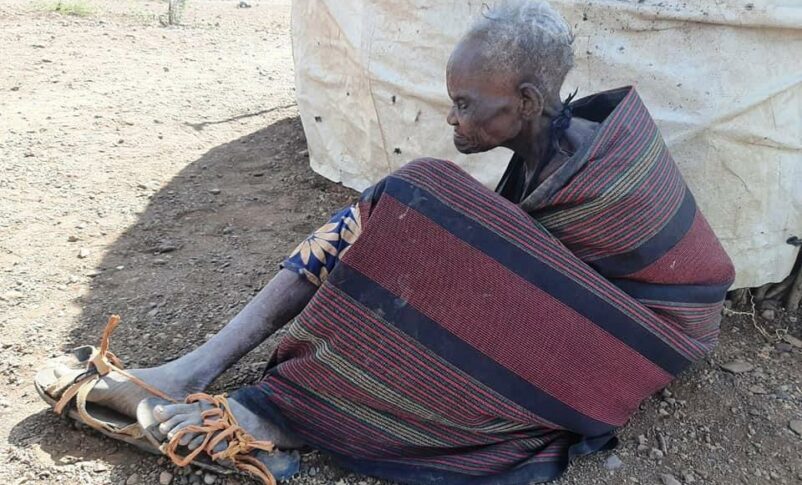Sudanese refugees in Chad face Security, humanitarian Challenges: report
December 11, 2023 (NDJAMENA) – A team of American activists who recently visited refugee camps in eastern Chad, on the border with Sudan, has issued a report highlighting the severe security, humanitarian, and legal challenges faced by Sudanese refugees in the country.
The delegation, organized by the Sudan Sunrise Organization, conducted field visits to camps near Adre, N’Djamena, and Abeche between November 13 and 30, 2023. They interviewed refugees, local authorities, and humanitarian workers to gain insights into the conditions faced by this vulnerable population.
The report, shared with Sudan Tribune, underscores the persistent fear and insecurity experienced by Sudanese refugees, particularly those residing near the border with Sudan. Despite efforts by the Chadian government to protect them, many refugees expressed concerns about the presence of Janjaweed militiamen, who reportedly continue to threaten and harass them.
The report notes that the camps of Maji and Abutangui, located just 20 kilometres from the Sudanese border, are particularly vulnerable to Janjaweed incursions. Despite the presence of joint Chadian-Sudanese security forces, these militia groups can easily infiltrate the camps, putting the lives of refugees at risk.
Since the outbreak of the conflict in Sudan in April 2023, over 451,894 refugees have fled to Chad, with 86% of them being women and children. The report highlights that even those residing in N’Djamena and other major cities face dire humanitarian conditions, struggling to access basic necessities such as shelter, food, water, healthcare, and education.
The report states, “The refugees living in the camps suffer from real famine due to the impoverishment they faced during the war, the flight of some of them with only their clothes from West Darfur to Chad, and the absence of major international organizations that could play an important role in alleviating their suffering.”
The situation is further exacerbated by the lack of adequate medical care and legal support for refugees. The report documents instances of refugees facing discrimination and mistreatment by local authorities, including restrictions on their movements and excessive fines.
Recommendations for addressing these challenges emphasize the need for increased international mobilization. The report calls for the deployment of more humanitarian workers, increased funding for food assistance programs, and enhanced security measures to protect refugees from Janjaweed attacks.
It also urges the Chadian government to improve access to healthcare, education, and legal aid for refugees. Additionally, the report calls for a thorough investigation into allegations of mistreatment by local authorities and the implementation of measures to ensure equitable treatment for all refugees.
The findings of this report underscore the urgent need for international action to address the plight of Sudanese refugees in Chad. Their suffering is compounded by ongoing security threats, inadequate humanitarian assistance, and discriminatory treatment. By mobilizing resources and implementing effective strategies, the international community can help alleviate their suffering and ensure their protection.
The World Food Programme (WFP) has issued a stark warning that food assistance for over half a million Sudanese refugees in Chad will run out next month without additional funding. Pierre Honnorat, Chad’s country director for WFP, told Reuters on November 15, “By December, there will be no assistance.” He further emphasized the need for $25 million every month to provide a meal a day to the estimated 800,000 refugees under their care.
This dire situation highlights the critical need for international donors to step up and provide the necessary funding to sustain humanitarian operations in Chad. Without this support, millions of refugees will be left without basic necessities, further exacerbating their already precarious situation, according to the report.
(ST)

